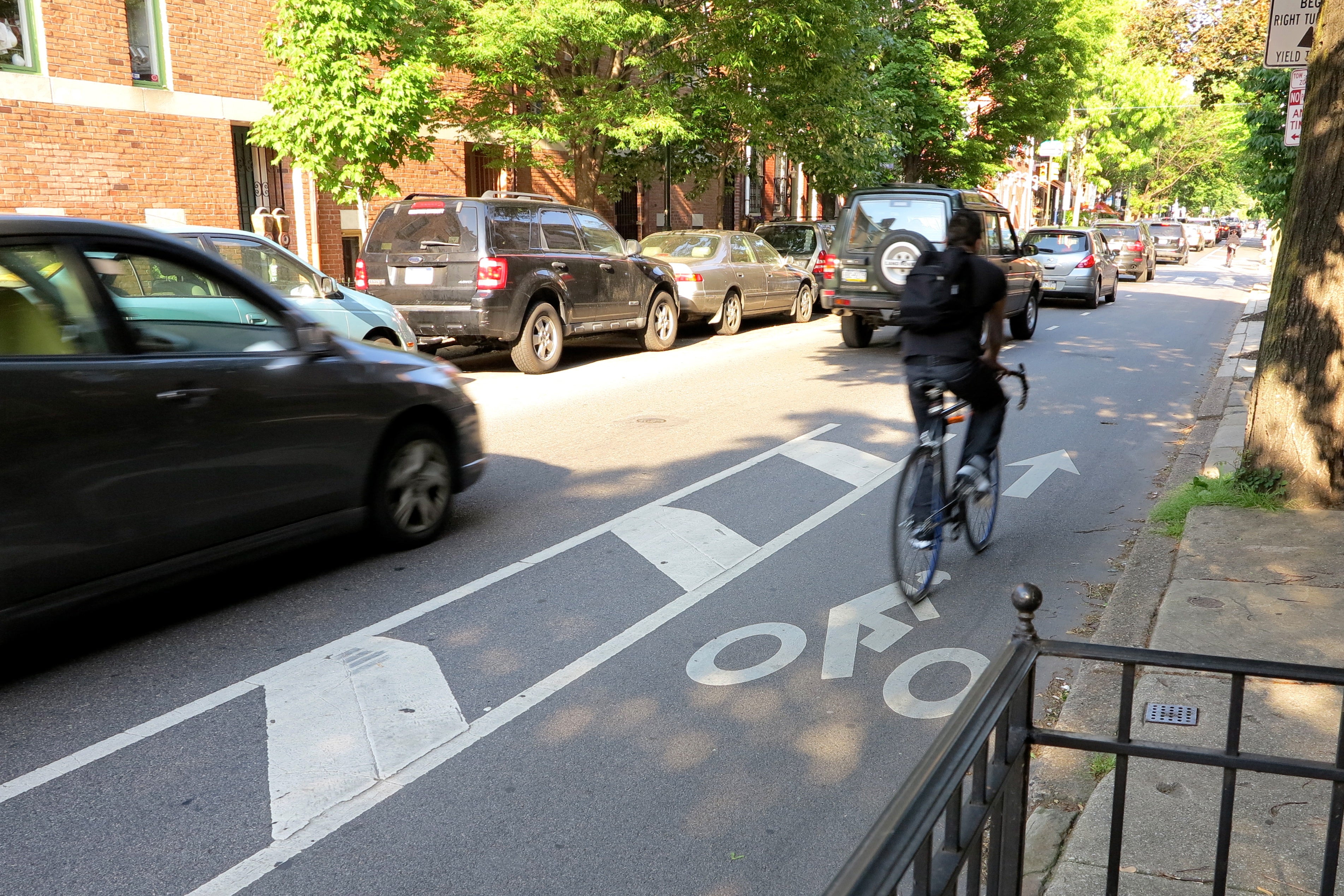Complete Streets Design Handbook now enforceable

This week, three years after Mayor Nutter issued his “Complete Streets” executive order and nine months after City Council passed the Complete Streets Bill, which called for the creation of a design handbook, the official Philadelphia Complete Streets Design Handbook will clear one final hurdle – approval by the city agencies that will implement it.
Tuesday the Philadelphia City Planning Commission (PCPC) adopted the handbook on the condition that the Mayor’s Office of Transportation and Utilities (MOTU) makes an effort to put hard copies of the 163-page document in the city’s branch libraries. The Philadelphia Streets Department is expected to okay the handbook Friday. Now, with adoption by both agencies, the city can require projects that meet a certain design threshold to fill out the handbook’s Complete Streets Project Review Checklist and file it with either the Streets Department or Planning Commission.
The Complete Streets Design Handbook is intended to help developers and citizens understand regulations and requirements the city has in place to ensure the creation of complete streets – streets that take all users into consideration.
“The Complete Streets Handbook does not change what already exists under other policies and other approvals,” said Ariel Ben-Amos, a senior planner/analyst at MOTU.
Rather, it gathers in one living-document all of the street design guidance and regulations found in the city’s zoning code as well as the Pedestrian and Bicycle Plan, 2035 Comprehensive Plan, Greenworks Philadelphia and the Philadelphia Water Department’s Green City, Clean Waters program.
“Even though there are no new powers being created, what we’ve really done is created a process that lets people understand how they can contribute to complete streets in Philadelphia,” Ben-Amos said. “We’re stating up front what our priorities are so that developers and community groups know what to expect from the city.”
Central to the handbook is the project review checklist. The checklist is a questionnaire of sorts that asks if a project complies with the design guidance and requirements detailed in the handbook. Projects that require Civic Design Review or Plan of Development Review must file a completed checklist with the Planning Commission. Projects that change the curbline must file a separate checklist with the Streets Department. Those agencies can then approve or reject the project proposal.
Until this week, though, the city could not require developers behind those projects to complete the checklist because the Planning Commission and Streets Department had not endorsed the handbook and its policies.
Now that PCPC has adopted the handbook and Streets is expected to do so Friday, qualifying projects must complete the checklist. If a project does not meet guidelines or requirements outlined in the handbook, the developer must give an explanation. It is then up to the Planning Commission or Streets Department to approve or reject the proposal.
“What the Complete Streets Handbook does is it slips itself in that sweet spot where the reviewer has discretion,” Ben-Amos said.
“The way the Complete Streets checklist works is you fill out the checklist, and … if you cannot abide by the standards, you have to explain to the reviewer why you’re not abiding by that standard, and then the reviewer has the discretion, as he had before and as he’ll have afterwards, to either accept or reject this proposed change.”
The reviewer will be a Streets Department engineer or Planning Commission staffer depending on where the checklist is submitted. Both city agencies will be required to post the checklists online.
Ben-Amos noted that the handbook and checklist are open to change.
“The handbook is a living document and the Streets Department has a Complete Streets Committee to review and revise what is, really, a living document,” he said.
The city has created an email address to gather any feedback that the handbook or checklist might draw. That email address is completestreets@phila.gov. The Complete Streets documents, including the handbook, checklist, bill and policy, can be found on the Streets Department’s website.
WHYY is your source for fact-based, in-depth journalism and information. As a nonprofit organization, we rely on financial support from readers like you. Please give today.




